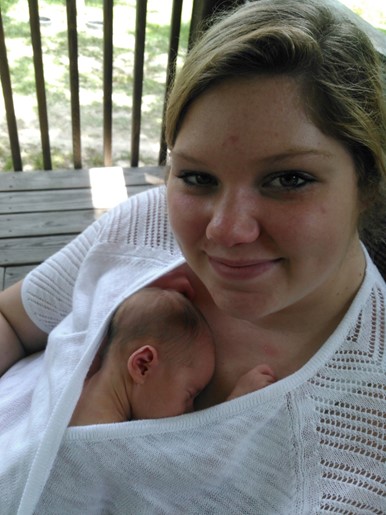By Dr. Timothy Faber
Ancient Rome was a wretched place. They made sport of people being devoured by wild beasts and cheered as gladiators fought in the arenas. They also had a practice called “exposure”—taking an unwanted newborn to the dump and leaving them exposed to the elements and the rodents. Infanticide. But in the first century AD, the church was accused of turning the world upside down (Acts 17:6). In time, the influence of the church led to such a shift in the cultural mindset that gladiatorial “games” were outlawed and exposure of infants ceased.
Some people might think that fighting for life is a political issue. But would we say that putting a stop to gladiatorial games was political or moral? Was ending the practice of abandoning infants at the dump a political decision or a moral one?
There was a time in the history of our own nation when many considered slavery to be a political issue. But many others saw it for what it is—a moral issue. Political issues are often settled with compromise, but moral issues demand clarity, conviction, and complete resolve. As a political issue, slavery survived for many years under a volley of compromises, including the Missouri Compromise (1820) and the Kansas-Nebraska Act (1854). While it is possible to be ambivalent about political issues, it is not possible—especially for followers of Christ —to be anything less than passionate about moral issues. It wasn’t until passionate men of conviction stood on moral ground and devoted themselves to ending that great atrocity that slavery finally ended in America.
We need passionate men and women of conviction in our day to stand and proclaim the sanctity of all human life as a moral issue and a matter of basic human dignity. We must fight the good fight, even if that battle is to be fought in the political arena.
Though many have an attitude that morality cannot be legislated, it is true that legislation can be used to restrain the lack of morality. God has ordained government for punishing evil and rewarding good (I Peter 2:14). We see in Proverbs 29:16 that “when the wicked increase, transgression increases; but the righteous will see their fall.” Engaging in political issues will help to ensure that wickedness does not increase.
The very concepts of good and evil, of wickedness and righteousness are moral concepts, not political ones. How shall the government know what is good and what is evil if the people of God are silent on moral issues? The church must speak truth and righteousness and boldly proclaim what is good and right, in order to influence those who make laws that we live under. Proverbs 31 approaches justice and morality in a way that supersedes any political aspects. “Open your mouth for the mute, for the rights of all the unfortunate. Open your mouth, judge righteously, and defend the rights of the afflicted and needy.” (Proverbs 31:8-9, NASB)
In defending the rights of the afflicted and needy it is important to also address the needs of mothers who feel that abortion is their best option. The Bible teaches us that older women are to teach younger women—this is not restricted only to “spiritual matters.” In years gone by, families and friends often spanned several generations. But in contemporary society many young mothers are facing the prospect of raising their child alone.
In addition to equipping and encouraging its members to engage the moral fight in the political arena, churches should consider what Jesus meant when he said, “By this shall all men know you are my disciples, if you love one another” (John 13:35). If we love our neighbor and one another to the extent that they are more confident to embark on the amazing journey of nurturing new life, there will be fewer seeking to have an abortion. Much like the early church combing the city dumps and adopting the abandoned infants demonstrated to their communities that every life is precious, the church today must take seriously the sanctity of every life—the pre-born child and the mother.
Dr. Timothy Faber has been a Baptist minister for over four decades and currently serves as Director of the Lake of the Ozarks Baptist Association and as the Legislative Liaison for the Missouri Baptist Convention. His wife Teresa is Executive Director of the Pregnancy Help Center, Lake of the Ozarks. They have four children and four grandchildren . . . with a fifth on the way.

